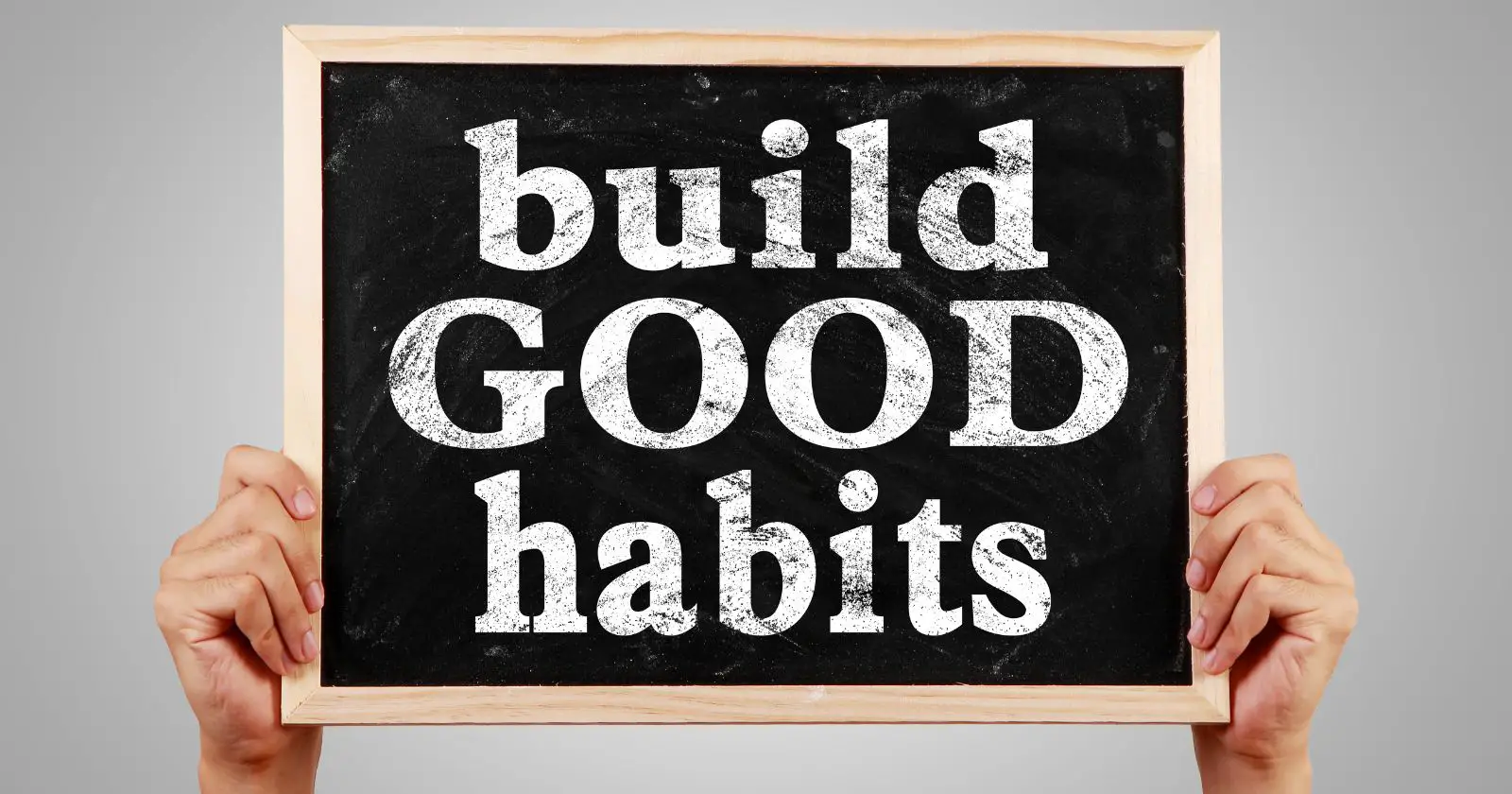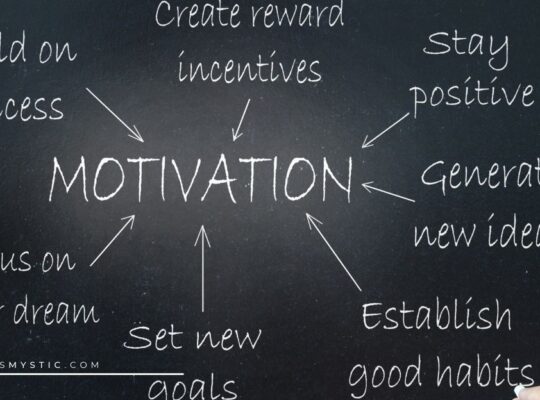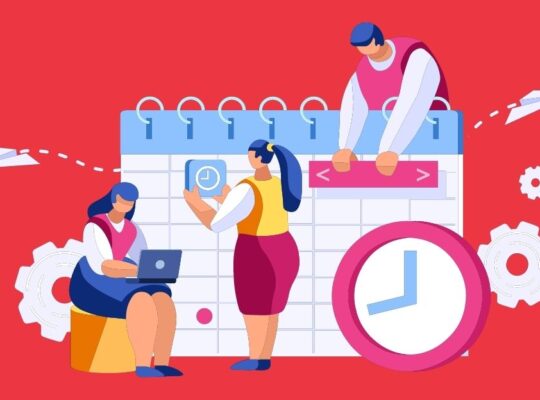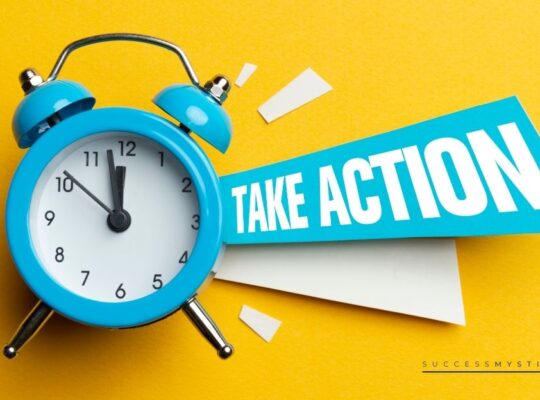Failure Is Inevitable…
While none of us enjoy failing, failing is an inevitable part of life. Learning to navigate failure is essential to surviving and thriving in life.
As uncomfortable as it might be there are a host of lessons we can learn from failure if we are willing to rest in the discomfort long enough to learn.
15 Key Lessons Learned From Failure
This post outlines 15 specific lessons failure can teach us and how those lessons add value to our lives.
1| Perseverance
If at first, you don’t succeed try again. It’s a phrase many of us have heard but few of us truly embrace. Perseverance is defined by the Oxford Dictionary as persistence in doing something despite difficulty or delay in achieving success.
When we fail, we are presented with two options: give up or try again. If we choose the latter option, we are developing the muscle of perseverance.
Perseverance offers a critical opportunity for self-analysis and self-evaluation. As we review the scenario of our failure, we can identify factors and elements that contributed to the failure. We can then see how we played a role in the outcome and identify areas of improvement. In identifying the areas of improvement, we can make the necessary adjustments, changes, alterations that will help us be more successful at our next attempt.
Hannah Bloch wrote for National Geographic on the matter noting, “…without the sting of failure to spur us to reassess and rethink, progress would be impossible.” Ultimately, we are given the chance to get smarter and become stronger so that we have a better chance of success (London, 2020).
However, we must first be in a position where we have failed before we can learn how to go through this process and develop the perseverance needed to succeed in life.
Failure also gives us a chance to persevere by allowing us to recommit to our goals. When we fail, we either realize our goal isn’t something we were truly passionate about and we choose to let it go, or we dig our heels in and become even more determined (Waits, 2016).
We become very clear about what is most significant and commit to putting our efforts and energy towards achieving success (Lindenmayer, 2013).
I’ve missed more than 9000 shots in my career. I’ve lost almost 300 games. Twenty-six times I’ve been trusted to take the game-winning shot and missed. I’ve failed over and over and over again in my life. And that is why I succeed.
~ Michael Jordan (NBA All Star)
2| Acceptance
Failure is completely unavoidable. At some point, we will all be in a situation where we are forced to sit with our failure. These scenarios teach us the powerful lesson of accepting those things we cannot change. We cannot begin to move past a thing until we first acknowledge it.
Full acknowledgment means analyzing it enough to determine what went wrong and identifying reasons why it went wrong. Once this has been identified, there is then the freedom to let it go. The valuable portion of the failure has been dissected and the rest can be discarded so you can adequately move forward (Tardanico, 2015).
Ultimately harboring the failure or obsessing over it does nothing to alter the outcome. Generally, obsessing over a failure intensifies negative feelings and works to prevent you from being able to move forward.
However, accepting what has happened and gathering key takeaways empowers you to shape your future (Tardanico, 2015). Accepting failure becomes the first active step in trying something new and making continued progress towards your goals in life.
NFL Coach Don Shula, known for holding the record for most career wins and the only perfect season in NFL history practically demonstrated this principle with his “24-hour rule.” Via this policy Shula gave himself, his staff, and his players just 24 hours to celebrate victory or wallow in defeat.
During that 24-hour period Shula encouraged everyone to feel their emotions as deeply as they could. After the 24-hour period ended everyone had to put the previous day behind them and invest their energy into preparing for the next challenge.
This demonstrated the idea that by accepting and moving past failures and keeping them in perspective, people are bound to do better in the long run (Tardanico, 2015).
3| Flexibility
There are few things quite as off putting as an unexpected failure, and honestly quite a bit of our failure is unexpected because few people invest time and energy into causes, they truly believe they won’t succeed at.
When we fail and choose to continue towards achieving our goals, we are faced with the realization that doing things the way we have will not result in a favorable outcome.
We must first approach the failure with critical, analytical eyes so that we can better understand the reason for the failure. The deeper we dig, the more insight we gain that can aid us in moving forward.
Armed with new insight we can then begin to make the changes and adjustments that will better help us reach our goals. The analysis aids our understanding. Our understanding aids our creativity.
Our creativity gives us the power to change our approach. We can then try new methods, apply new practices, consult new resources and invoke whatever additional fresh ideas that will better our chances of success (Tardanico, 2015).
The phoenix must burn to emerge.
~ Janet Fitch
4| Courage
Courage is not the absence of fear, but rather the ability to do something in spite of the fear you may be experiencing. When we fail and choose not to let that failure stop us from continuing forward towards the achievement of our goals, we are exhibiting courage in an extraordinary way.
The more we experience the thing we are afraid of (failure) and push through it, the less power it ultimately is able to have over us. So, each time we fail, we build a sort of immunity to fear that better allows us to embrace risks and take chances, which gives us more opportunities to succeed.
5| Resilience
Resilience is one’s ability to recover from tragedy, trauma, or hardship that is experienced in life. Failure is one of the greatest ways to develop resilience.
Resilience is like a muscle, the more you are put in situations that require you to respond resiliently, the stronger your resilience becomes. Thus, failure becomes a weight that can be used to fortify that muscle.
Failure forces us to learn how to cope and develop strategies that will help us navigate future challenges and potential failures. The more we manage to bounce back from failure the less daunting it seems. This then increases our likelihood of taking risks that could lead to success.
Thomas Edison was once quoted as saying, “I have found 10,000 ways something won’t work. I am not discouraged, because every wrong attempt discarded is another step forward.” This was reportedly stated after he invented the light bulb (which he reportedly failed at 10,000 times previously). Rather than being discouraged by each failure he learned a little something each time that helped him bounce back from the failure and try again.
The same could also be said of the Wright Brothers who reportedly spent years working on and failing at creating aircraft prototypes before finally creating a successful airplane. They took all their failures, learned a little something from each, and continued moving forward on their quest until they were eventually successful and met their goal (Tardanico, 2015).
6| Perspective
When we fail, it can be easy to fall into the trap of only seeing the negatives. We can choose to focus on the mistakes made and the things lost, or we have a valuable opportunity to gain valuable perspective in the midst of failure. If determined, failure can teach us optimism in the sense that we learn that failure is temporary.
We can learn that rather than being the end destination, failure is simply a stop on the journey. Dr. Sam Collins, executive coach and speaker discussed it by saying, “Something good is happening here. Look for the greater message of the experience and expect it to, eventually, turn out for the good. Recognizing this gets easier with practice (Arruda, 2016).”
With this more optimistic and hopeful perspective we become better equipped to bounce back from failure and make continued strides towards success after experiencing failure.
You build on failure. You use it as a stepping stone. Close door on the past. You don’t try to forget the mistakes, but you don’t dwell on it. You don’t let it have any of your energy, or any of your time, or any of your space.
~ Johnny Cash
7| Humility
There is something very humbling about failing. We are suddenly forced to confront our own imperfections, lack of knowledge, and lack of skill. While this realization should not be internalized as a means of developing a low sense of self-worth or self-esteem, this realization can provide some balance regarding your view of yourself as compared to others.
It’s in your own failure that you become more understanding of and forgiving of others who make mistakes because you realize you aren’t above it. (Koulogeorge, 2017).
Empirical research on humility suggests that humility, which can be fostered through failure, provides great value. Humility has been linked with enhanced job and academic performance, as well as excellence in leadership.
Additionally, research goes on to suggest that humility improves social relationships because those who are humble tend to be more forthcoming about their own failures and flaws, more forgiving, more grateful, and more cooperative. There also is data which shows that humility is a consistent predictor of generosity (Austin, 2012).
8| Opportunity
At first glance it may seem like failure limits opportunities, but for the person who is looking, failure can also create opportunities. Failure creates limitations that cause us to have to reassess and readapt.
We are often forced to increase our creativity as a means of generating new and fresh ideas and in order to attract new resources that can be implemented to solve the problem in a different manner. It is this enhanced creativity that creates new doors of opportunity.
When we are forced to stretch outside the realm of our comfort, normal patterns of thinking, and traditional methods of addressing issues we open the door for new ideas, new discoveries, and new opportunities (Lindenmayer, 2013).
Additionally, opportunity also exists in the form of feedback. When we fail, we are given the chance whether through our own reflection or the outside review of someone else, to gain feedback about our strengths, weaknesses, and areas of improvement.
This then gives us the opportunity to improve ourselves and alter conditions so that we can ultimately get better and closer to our goals (Lenz, 2015). Hannah Bloch wrote the following for National Geographic, “Failing at something acts to demonstrate limitations, to force us to rethink or re-evaluate how we do things, and to learn how to do them better. It adds a road block, ups the ante, and makes us use our brain, cooperate and get creative with the world (Tardanico, 2015).”
9| Growth
Failure gives us the unique ability to actually gain and enhance as a direct result of something viewed as a loss. Failure can create a learning and development environment where we are able to consistently recognize failure (small and large), systematically analyze them, and proactively search for opportunities to experiment.
Continually engaging in this process inevitably leads to increased knowledge, enhanced skills, and ultimately growth which gets you closer to your desired goals. When this system is implemented and regularly practiced it counteracts self-blame which keeps people from learning from failures, and instead helps people embrace their mistakes as steps on a path of ultimate success.
Given this model of detection, analysis and experimentation, failure becomes viewed less as something to be avoided, but more so something to be both expected and accepted. The idea being that the more often you fail, the quicker you reach your end goal of success (Edmondson, 2011).
10| Learning
Critical information and knowledge are also obtained during the process of failure, and often the only way that information could be gained is through the process of failure. When we fail, our reality is challenged.
We are forced to face the fact that our initial ways of thinking and processing were not valid, and then we have to draw conclusions based on this information. This often leads to a period of discovery or revelation where we see flaws in our logic, errors in our thinking, and become aware of alternate perspectives or methods we otherwise would not have been aware of or exposed to.
A study published in the Journal of Applied Psychology in the early 90’s found that discussing failures resulted in higher rates of learning. In the studies, authored by Shmuel Ellis from Tel Aviv University, two companies of soldiers in the Israel Defense Forces were followed. Soldiers from each group were tested for their performance on navigation exercises and then given after-action reviews to discuss the details of their performance.
The first company of soldiers went through a series of event reviews that focused solely on their mistakes. The second company of soldiers went through event reviews that focused on what could be learned from both their successes and their failures. Study results found that the experience of failure led to richer mental models than the experience of success amongst the studied soldiers (Sutton, 2007).
Failure is not falling down but refusing to get up.
~ Chinese Proverb
11| Confidence
While initially failure can be a blow to our confidence, ultimately failure can be the first stop on a path to increased confidence if we channel it properly. Certified Life Coach Pam Bauer noted in an article for the Huffington Post that developing the ability to be good at falling down and getting back up helps people become confident going into new situations because they have the reassurance that they will ultimately be fine no matter the outcome.
Essentially, the act of failing makes you more comfortable with failing because you understand that failing is not a direct reflection of your overall worth, value, knowledge, or abilities. Thus, you can fail while still holding the belief that you can and eventually will reach a positive outcome.
Research has gone on to show that individuals who are somewhat hesitant to attempt something but consider themselves capable of achieving their goals tend to be more likely to succeed.
Meaning that even though they might be a bit fearful, self-confidence tends to assure their success in the end. Conversely, research shows that fear of failure coupled with doubt in one’s abilities can lead to self-sabotaging procrastination. Essentially, fear of failure plus lack of confidence equates to ultimate failure (Enochs, 2015).
12| Identify Support Systems
Often failures reveal to us the fact that we need assistance accomplishing the goal or task we set out to do. Through the process of reflection and analysis we identify gaps in our own knowledge and abilities. It is at this point we begin to reach out to others that possess the knowledge, skills, or resources that we lack as a means of aiding us in achieving our goal.
Whether that support network consists of family, friends, colleagues, or others who can offer physical and emotional support or resources and tools, identifying these support networks and adding them to our own processes strengthens our methodology, amplifies our resources, and increases our overall chances of success the next time we approach our goal (Waits, 2016).
13| Patience
The development of patience is an often overlooked or underrated benefit that failure offers us. It can be understandably frustrating to make an attempt toward a goal and not achieve it.
Typically, we all have a reactive initial response to failure. We get angry, sad, disappointed, or whatever other emotion that characterizes the way failure can make a person feel. However, eventually, we push through those emotions and make the decision to move forward again in the pursuit of our goals.
What failure does, especially if it is repeated and prolonged, is to teach us to gain better control over our emotional responses to not getting the thing we want (achievement). Essentially this is the concept of delayed gratification versus instant gratification. The more we fail, the more we are exposed to those negative emotions and the more we have to face them and gain control over them so that we can move forward. Eventually, we teach ourselves the art of waiting with the understanding that our goal will be reached at some point.
This means we learn how to fail without letting our emotions get the best of us or hold us hostage. We don’t get indignant or so depressed that we give up. Rather we assess how we feel, cope, and continue on doing that which will help us get to where we ultimately want to be (Barber, 2013).
14| Greater Success
It may seem contradictory to common sense, but it turns out that those who tend to fail most often also tend to be the most successful long-term. History is filled with individuals who began with big fails or periods of prolonged failure that eventually turned into major and prolonged success.
This is because failure offers critical learning opportunities that cannot be provided in other ways. When we fail, we learn, grow, and expand in ways that help us as we attempt to tackle the challenge or problem again (Dartnell, 2014). Armed with the new knowledge or information we become better equipped and more prepared to handle the situation, and the chances of success are increased.
One example of this can be seen in Steve Jobs. By age 30 Jobs was a college dropout, a fired tech executive, and an unsuccessful businessman who had actually been removed from the company he founded, Apple.
However, we all know that Steve Jobs went on to become one of the most successful tech moguls and businessmen of all time prior to his death. In a 2005 commencement speech he gave at Stanford University, Jobs noted that the failure of being fired from Apple was the best thing that ever happened to him because it freed him to enter a period of greater creativity (Dartnell, 2014).
Another example of this can be seen in actor Sylvester Stallone. He spent his childhood shuffled in and out of foster homes and spent his early adulthood struggling to earn a steady income. He noted one instance of having failed so significantly that he had to sell his dog for $25.00 just to help pay his electricity bill.
However, it was that low moment of failure that led him to write the famous Rocky script in nearly 20 hours straight just two weeks after selling his dog. Yet, his failure streak continued as he was rejected more than 1500 times before turning down an offer by United Artists for $125,000 if he would not star in it.
To some, he may have failed again by turning down that deal and the subsequent $250,000 and $350,000 they offered afterward. However, he finally took a deal for $35,000 and a percentage of the profits which allowed him to star in the film which was likely one of the biggest successes in film history as Rocky went on to gross $200,000,000 and the sequels grossed over a billion dollars. Stallone was able to use his failure as fuel to lead him to ultimate success (Dartnell, 2014).
Successful people don’t fear failure but understand that it’s necessary to learn and grow from.
~ Robert Kiyosaki
15| Credibility
A final lesson that can be gleaned from failure is that of credibility. While it may seem like success would be the better qualification for credibility, failure actually serves as a stronger source of credibility. When we fail, we learn. Through the process of assessment and analysis we gain clarity about what went wrong, why it went wrong, and then we begin to develop solutions and alternate plans as a means of achieving success.
The experience and knowledge that we gain via failure, helps us to make better decisions and wiser choices moving forward. We can then go into a secondary situation with first-hand knowledge of what to avoid and why because you just walked through the experience.
Additionally, the process of failing makes you more relatable to others because failing is a universal experience. Thus, people are more willing to be vulnerable with you, engage with you, and work with you when they see you as someone just like themselves- imperfect but still willing to keep working towards success (Yoon, 2016).
Failure does not have to be all bad. If we resolve in our minds that we can gain something valuable from our failures, then we will do so each and every time. By doing so we become better equipped to cope with adversity, overcome challenges, and navigate our lives with resilience, grace, and ultimately success.
It is impossible to live without failing at something, unless you live so cautiously that you might as well not have lived at all – in which case, you fail by default.
J.K. Rowling
References:
- 10 signs that you might have fear of failure. (2013, 18). Psychology Today.
- Arruda, W. (2015, May 14). Why failure is essential to success. Forbes.
- Austin, M. (2012, 27). Humility. Psychology Today.
- Dartnell, A. (2014, September 18). 6 benefits of failure that prove that it is actually a good thing. Lifehack.
- Edmondson, A. (2011, April 1). Strategies for learning from failure. Harvard Business Review.
- Enochs, E. (2016, December 16). Why failure is good for you. Bustle.
- Fuentes, A. (2013, October 10). Failure is good. Psychology Today.
- Koulogeorge, P. (2017, November 20). Council post: The surprising benefits of failure. Forbes.
- Lenz, B. (2015, April 8). Failure is essential to learning. Edutopia.
- Lindenmayer, M. (2013, December 2). The five major benefits of failure. Forbes.
- London, R. (2020, March 12). How failure develops perseverance & enhances learning (2020). Everyday Power.
- Sutton, R. (2007, June 4). Learning from success and failure. Harvard Business Review.
- Tardanico, S. (2015, November 18). Five ways to make peace with failure. Forbes.
- Thomas, G. (2020, May 6). 5 ways of accepting failure & how to build confidence from it all. Everyday Power.
- Waits, K. (2016, July 6). 7 surprising benefits of failure. Wise Bread.
- Yoon, C. (2016, June 30). 6 benefits of failure to fuel your business growth. Yoon Cannon.







